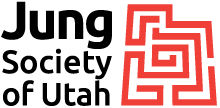The Wizard of Küsnacht: Jung, Magic, and the Mind
“Of course it is happening inside your head, Harry, but why on earth should that mean that it is not real?”
– Albus Dumbledore, Harry Potter and the Deathly Hallows by J.K. Rowling
In the post-industrial world it’s hard to imagine any sane adult seriously expecting to shoot fireballs, levitate solid objects or turn someone into a frog, yet fascination and fear of magic and the occult persist. And in fact, the practice of magic still thrives in multiplying varieties and schools of thought. What are these people trying to do?

A dozen years ago I was in a rock band with a fellow who practiced magic. In one conversation he told me about a time he had tried to summon an angel and summoned a demon instead. For the record, I believed his story and still do. Students of Dr. Jung’s work have every reason to be open-minded about claims to converse with otherworldly beings, whether reported by John Dee or an impetuous young headbanger. A previous post briefly told the story of Jung’s work with Active Imagination. From a magical standpoint, one might call the Red Book a grimoire: after all it records interactions and conversations with personages and personalities outside the conscious ego. As Memories, Dreams, Reflections shows, Jung was no stranger to unusual phenomena that defy materialistic rational explanation. One of the most dramatic examples was a series of visitations that prompted Jung to write Seven Sermons to the Dead, a short work which he published under the pseudonym of a historical gnostic teacher, Basilides of Alexandria.
While Jung did not present his private spiritual/psychic experiences as magic (and indeed later dismissed the Seven Sermons as a “sin of my youth”), that did not prevent him from gaining a reputation as something of a wizard with his research into occult phenomena and alchemy. And although we may suspect that the good doctor would laugh at being equated with a modern-day Merlin, his work brought such color and vitality to psychology – as the study of the soul – that to study it is to feel an undeniable connection to something deep and powerful. If that isn’t magic, what is?

Indeed, modern trends in magical thought and practice have been reaching purposefully toward psychological understanding. The English author and self-proclaimed magician Alan Moore defines magic as “the search for the Self with a capital S. This is understood as being the Great Work, as being the gold the alchemists sought…” Of course this is in essence the same goal sought by depth psychology, and Jung’s contribution to the revitalization of alchemy as a meaningful and worthwhile enterprise in our day is undisputable.
But the devil is in the details: there is an important distinction to be made when considering magic vis-a-vis psychology, and it concerns the all-important division between conscious and unconscious. A widespread belief persists in magic as a way to impose your will on reality – to bring something to manifest in your life by a sort of shortcut of the usual laws of cause and effect. We see this markedly in certain business gurus and prosperity preachers, as well as self-proclaimed witches and magical practitioners offering to help bring money, wealth and love into our lives.

While magic can make changes in your life, there’s a great danger of inflation. When a brash ego gets a taste of gnosis the results of inflation can carry out real evil on a large scale: simplified ideas of new superior races, the resulting contempt for those deemed subhuman (or even sub-superhuman!), and callous disregard of facts have shaped the policies of ambitious rulers to disastrous ends.
Here is Alan Moore again:
The traditional definition of magic – and I think this comes from Crowley who laid down a lot of the ground rules – he defined magic as bringing about change in accordance with the will. I’m not sure about that. It’s certainly part of it, but to bring about change in the universe in accordance with your will seems to me to be misunderstanding the relationship between the individual and the universe. In my relationship with the universe, I do tend to see myself as very much the Junior Partner. I don’t want to impose my will on the universe, I’d rather the universe imposed its will on me. I would rather that what I wanted was more in tune with what the universe wanted.
The parallels with Jung’s thought should be clear here. Happily, more magicians are recognizing this and warning against the idea of magic as a short-cut. Magical practitioners are also finding their way to Jung’s works across the bridge that Jung first began laying down a century ago, and his psychological insights concerning the nature of the unconscious give an urgently-needed wake-up call to modern pretensions to power.
~Charles Stanford
Archivist, author, musician
Staff Writer – Jung Society of Utah
Etsy shop: Only Real Quills
Never miss a blog post! Sign up for our newsletter here.
If you enjoyed this blog, please share it via one of the social share buttons here below.
